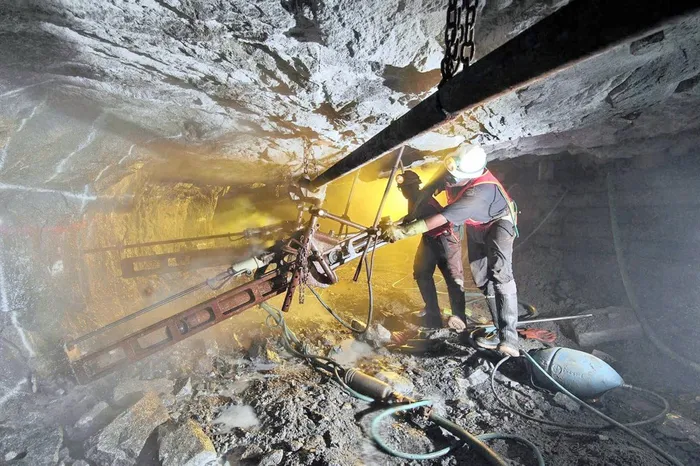
The Mining Affected Communities United in Action (Macua) says the proposed draft Mineral Resources Development Bill, 2025, betrays the transformation objectives fought for during the liberation Struggle.
Image: Supplied
As South Africa is preparing to commemorate the Marikana Massacre, the Mining Affected Communities United in Action (Macua), says communities are still excluded from crucial decision-making related to mining and its impact on their lives, and that the proposed draft Mineral Resources Development Bill, 2025, would further perpetuate the assault.
This exclusion perpetuates a cycle of marginalisation and inequality, where communities bear the brunt of mining’s negative impacts without benefiting from the resources extracted from their land.
The Draft Bill was published for public comment on May 20, 2025, with a submission deadline of August 13, 2025. The Bill aims to ensure policy and regulatory certainty, enhance investor confidence, reduce bureaucratic inefficiencies, and improve turnaround times for mining rights, permits, and regulatory approvals, as well as formally recognise artisanal mining and advance transformation in the mining sector.
However, Macua said the Bill, as currently drafted, betrayed the transformation objectives fought for during the liberation Struggle.
The organisation said instead of advancing democratic participation and justice, the amendments entrench the power of mining companies and marginalise the voices of communities.
Macua, which is expected to make a submission today (August 13), added that Minister of Mineral and Petroleum Resources Gwede Mantashe and his department are failing in their constitutional duty to ensure meaningful consultation, participation, and protection for communities directly affected by extractive activities.
“We refuse to be treated as spectators to decisions that determine the fate of our land, our water, our health, and our economic sovereignty,” stated the organisation.
The department on Monday said it was working on a response. Spokesperson Johannes Makobane on Tuesday said a response was going through internal processes.
Macua spokesperson Tholakele Thabane said submissions would be made in five provincial offices of the Mineral and Resources. The provinces include Pretoria (Gauteng), Klerksdorp (North West), Emalahleni (Mpumalanga), Polokwane (Limpopo), and Welkom in the Free State.
“This submission and our collective resistance take place on the 13th anniversary of the Marikana Massacre, when 34 mineworkers were gunned down for demanding a living wage. It also comes just eight months after the state engineered the mass starvation and abandonment of over 100 artisanal mineworkers in Stilfontein, whose lives were treated as disposable,” said Thabane, who added that these moments are not isolated incidents, and that they are part of a broader pattern of the state-backed violence, neglect, and the criminalisation of poor, black mining communities.
South Africa will commemorate the 13th anniversary of the Marikana Massacre on August 13, 2025. The tragedy happened at the Lonmin Platinum Mine in Marikana, North West, on August 16, 2012. The event, which involved a police shooting during a strike, resulted in the deaths of 34 miners and injuries to many more.
By physically delivering its submissions to the Mineral and Petroleum offices, Macua said it is making it clear that it refuses to be sidelined, ignored, or tokenised.
The organisation stated that this action is a collective refusal to accept the ongoing exploitation, marginalisation, and environmental destruction that the proposed Bill threatens to worsen.
“This is not just a symbolic gesture; this is a necessary act of resistance. It is a direct and deliberate intervention by communities to assert our constitutional rights to be heard, to be consulted, and to influence the laws that govern our land and resources.
“We are not merely stakeholders; we are the rightful custodians of the land, and our voices must shape the policies that impact our lives,” said Thabane.
The organisation said the Bill also fails to reflect the lived realities of mining-affected communities and was compiled without genuine community participation, adding that it goes directly against the recommendations of the SA Human Rights Commission (SAHRC), which has repeatedly called for the full legal recognition of mining-affected communities and for mechanisms that guarantee community ownership, benefit-sharing, and protection from exploitation.
“Far from advancing transformation, the Bill removes critical protections and omits key obligations that previously existed, such as the requirement for community ownership under the Mining Charter. This exclusion, among others, strips communities of their economic agency and ensures they are left poorer and more vulnerable, while mining companies are further empowered,” said Thabane.
He added that the Bill also fails to establish artisanal and small-scale mining (ASM) as a viable and legitimate economic pathway for communities, and will continue with the criminalisation of artisanal miners, enabling state and police violence through laws that mirror operations like Vala Umgodi.
manyane.manyane@inl.co.za